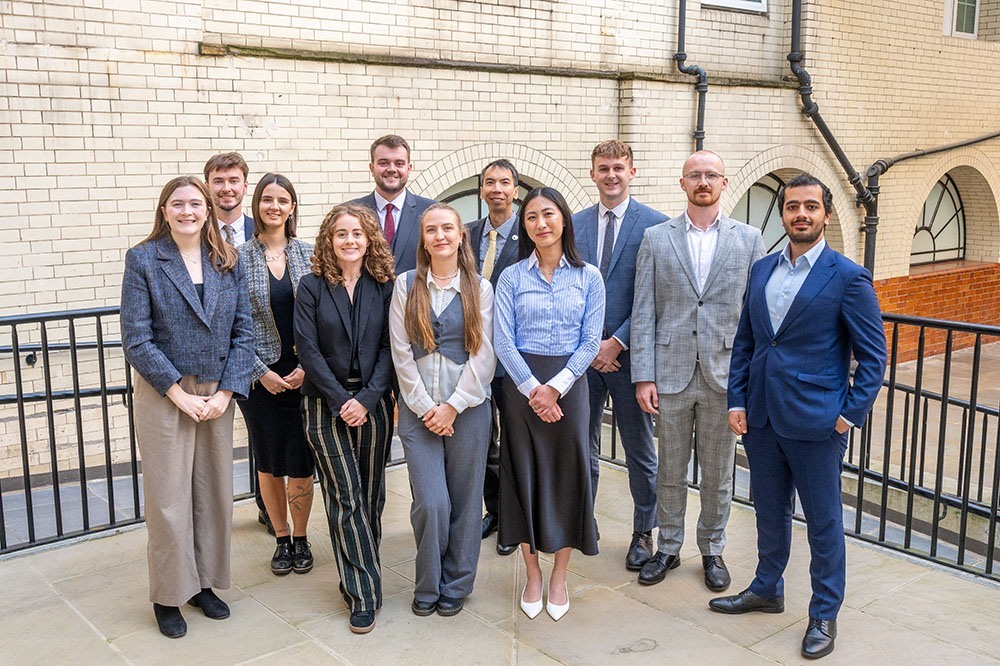Prestigious Royal Commission fellowships awarded to twelve early-career researchers to address pressing industry challenges
News
Posted: 30/09/2025
Prestigious Royal Commission fellowships awarded to twelve early-career researchers to address pressing industry challenges

- 12 early-career innovators have been awarded Prince Albert-funded Royal Commission fellowships to transform breakthrough science into industrial impact.
- The 1851 Royal Commission awards up to £5 million in fellowships to tackle global challenges in health, sustainability and engineering
- Applications are now open for 2026 Industrial Fellowships
Twelve outstanding early-career researchers have been awarded prestigious Industrial Fellowships by the Royal Commission for the Exhibition of 1851, receiving up to £125,000 to pursue their research in partnership with industry. Each fellow conducts their research while pursuing a PhD at a UK university, enabling them to put their projects to the test against a backdrop of real-world industrial challenges.
This year, the 1851 Royal Commission has distributed in excess of £5 million through Fellowships, Scholarships, and Awards. Projects funded include developing human cell models for motor neuron disease, advancing new approaches in drug discovery, and creating new materials driving the clean energy transition.
This annual investment generates innovations valued at around £2 million per year in intellectual property, driving the development of new technologies and critical scientific advances across research disciplines and companies hosting these researchers, strengthening the leading position of UK industry.
John Lavery, Secretary at the Royal Commission said,
“To stay at the forefront of science and engineering, the UK must invest in the next generation of innovators who are willing to take bold ideas from laboratories into industry. These Fellowships give early-career researchers the resources and support to turn groundbreaking concepts into technologies that benefit society, the economy, and the planet. The Commission is proud to support these pioneers as they tackle global issues in sustainability, manufacturing, and health, through transformational technologies and tools such as artificial intelligence – shaping the future of science and society.”
Since its foundation in 1850 by Prince Albert, the Royal Commission has supported generations of UK innovators in their first stages of research, including Nobel laureates Peter Higgs and Paul Dirac, as well as physicist Ernest Rutherford. This tradition continues with the new Fellows, who will be supported by an industrial and academic supervisor throughout their project and will join an impressive alumni community that will inspire their future progress.
Full list of 2025 Industrial Fellows:
Alex Bentley, GSK and University of Strathclyde
The development of molecular glues to target previously untreatable cancer proteins
Viktoria Brachmaier, LifeArc and University of Sheffield
Advancing translatable human cell models for motor neuron disease
Natasha Bury, LifeArc and University of Glasgow
Advancing antibacterial drug discovery to fight antimicrobial resistance
Cordelia Cavill, QinetiQ and Imperial College London
AI-driven design of perovskite materials for clean energy technologies
Charlie Chandler, Thermo Fisher Scientific and University of Surrey
Femtosecond laser ablation for advanced materials analysis
Graham Lightfoot, Johnson Matthey and Durham University
A new sustainable catalyst for the synthesis of methanol
Zaeem Najeeb, Johnson Matthey and University of Oxford
Accelerating clean energy catalyst development through advanced microscopy
Carl Parsons, Sensor Coating Systems and University of Cambridge
High-resolution thermal mapping of Temperature Memory Coatings
Anna Passmore, Cortex Organics Ltd and University of Oxford
New methodology for building complex chemical molecules
Maggie So, GSK and University of Strathclyde
Building and screening of a diverse covalent molecule library for targeted drug discovery
Samuel Winter, BT and University of Edinburgh
Optimising telecommunications systems with quantum computing
Wan Yeung, Aqualution and University of Edinburgh
Untangling green hydrogen’s future with seawater
